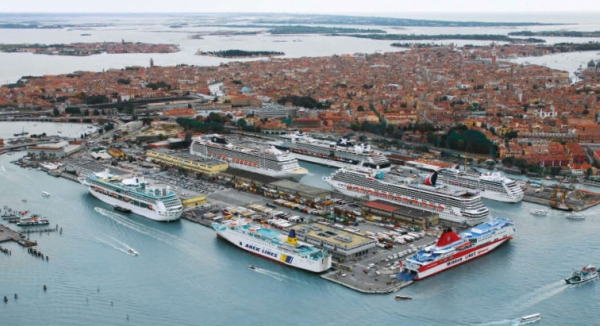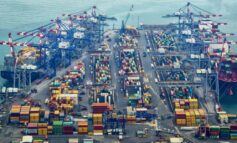Cruise ports and the development of a related research agenda have been at the core of the discussions during the 11th Port Performance Research Network (PPRN) that met in Marseilles France.
Looking ‘beyond the box’, PortEconomics members Thanos Pallis and Jean-Paul Rodrigue presented to PPRN members the themes of a research agenda focusing on cruise ports that initiated a discussion and great interest in developing several research initiatives.
The cruise shipping industry has witnessed uninterrupted growth over the last 30 years to reach close to 20 million passengers in 2011. The facilities and service attributes of cruise ports are crucial to the cruise experience of a growing number of passengers. However, the academic literature on cruise ports is scarce and does not cover well the recent developments in the industry. With the growth in the cruise business, cruise ports are gaining in importance for assuring schedule reliability and for allowing a continuous passenger transfer to onward air journeys and or day excursions. Moreover, cruise lines have developed a keen interest in cruise ports given growing berth availability and capacity issues in quite a number of ports of call. Cruise ports have also become attractive investment opportunities from a co-location perspective, e.g. in relations to hotels, marinas, condominiums, resorts and shopping malls.
The research agenda proposed by Thanos and Jean-Paul is associated with a number of issues, and aims to produce concrete output to be produced in special sessions at the conference of the International Association of Maritime Economists (IAME) to be held in July 2014 in Norfolk, Virginia in the US.
You might download Thanos’ and Jean-Paul’s research agenda structuring presentation @ PortEconomics
|
PPRN is an informal network of maritime economists interested in issues of port policy management and economics that was established at the IAME 2001 meeting in Hong Kong to undertake empirical testing of port governance, and is currently coordinated by the members of the PortEconomics team Mary R. Brooks and Thanos A. Pallis. Since then, PPRN has met ten times, and its members produced a summary report of port governance structures and port developments in 14 countries. The outcome of the first phase of PPRN activities was published in: Brooks M.R. and Cullinane K. (Eds), (2007). Devolution, Port Governance and Port Performance. London: Elsevier. Research from the second phase of findings will be published by Elsevier’s Research in Transportation Business and Management (RTBM) in a special issue on “Port perormance and Stategy’, co-edited by Mary Brooks and Thanos Pallis, and due to publication in December 2013. |












